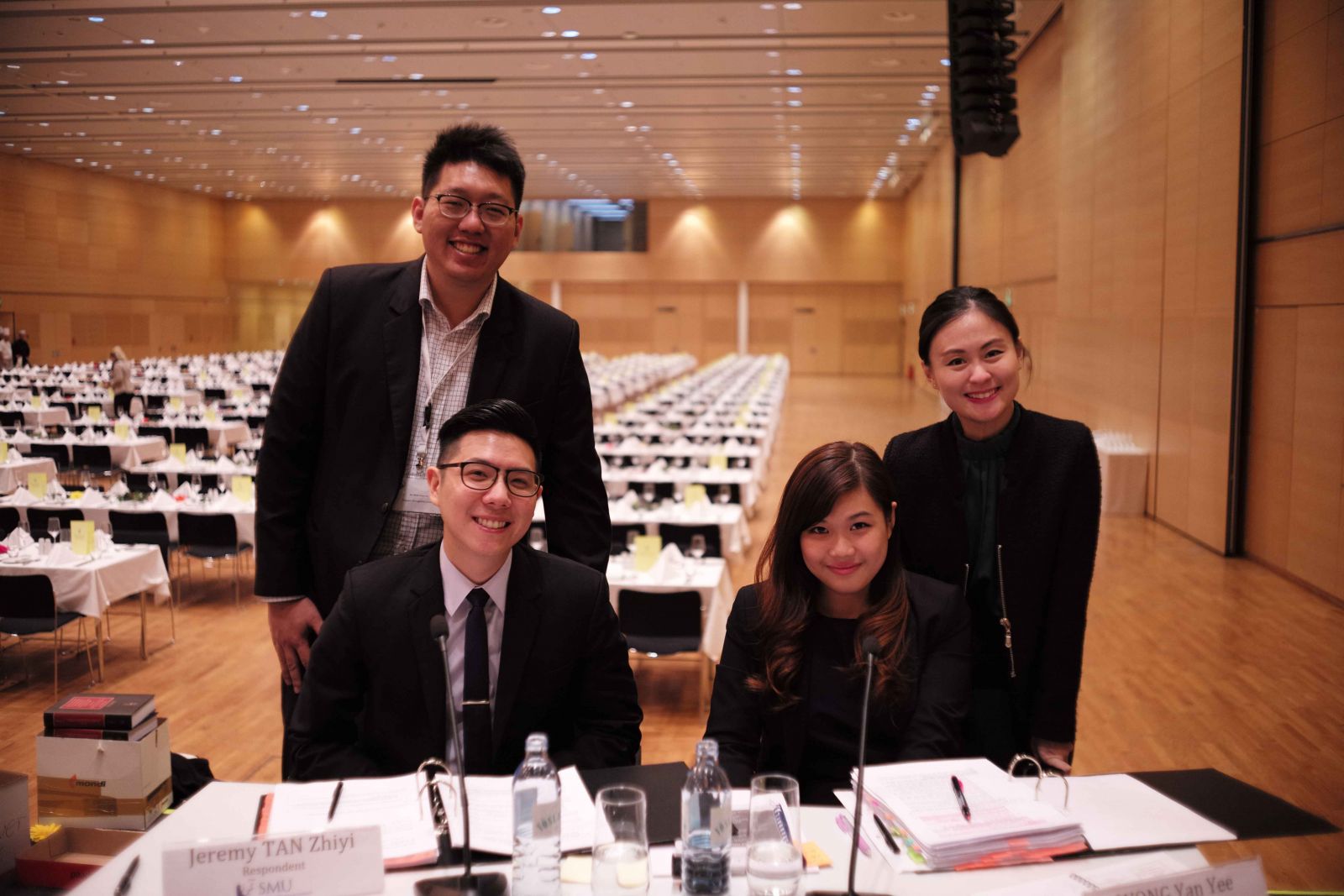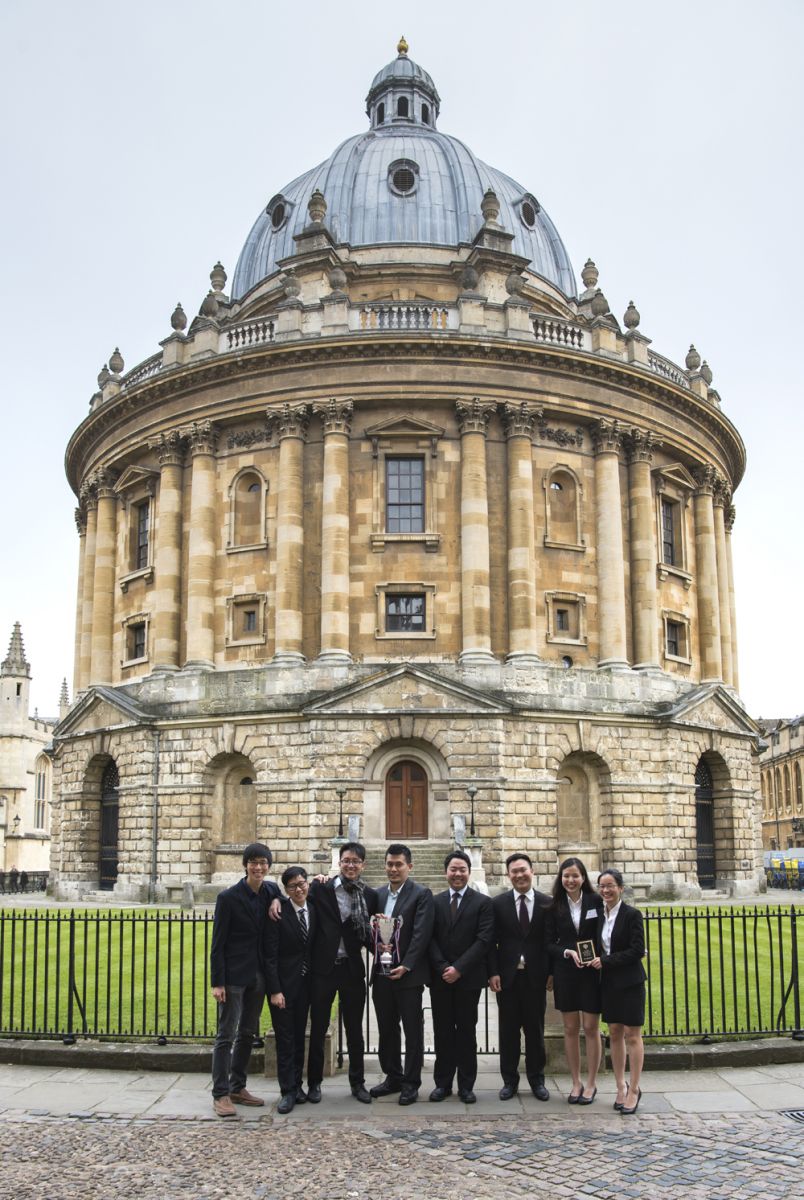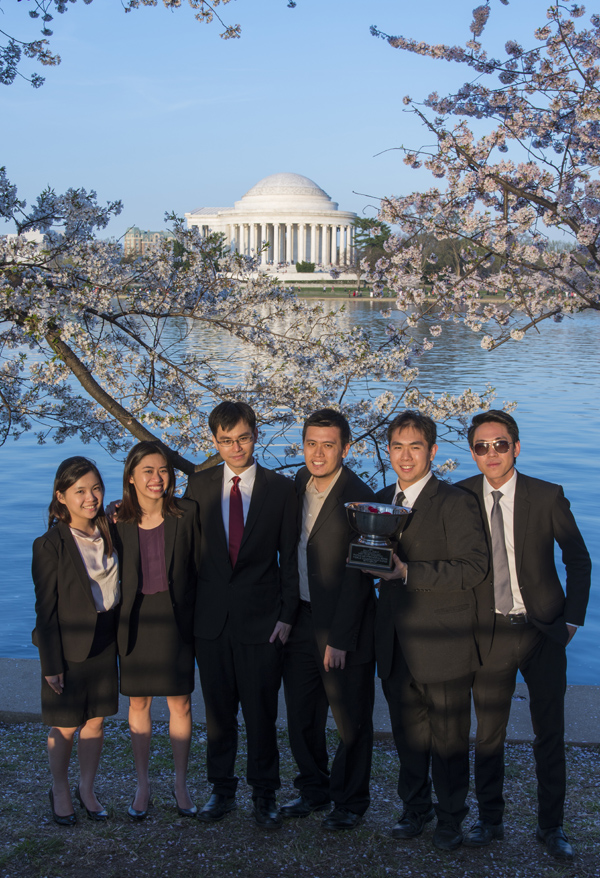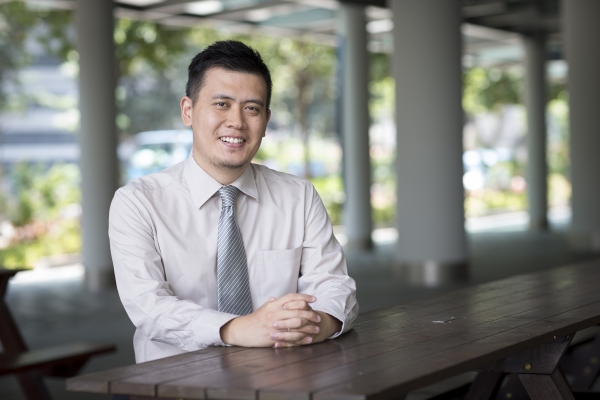More Thoughts on Another Record-breaking Season for Singapore’s International Mooters
A Summary of the Previous Report
Around this time last year, I wrote in this publication about the record-breaking achievements of Singapore mooters in international moot competitions (see “Some thoughts on a record-breaking 2014/15 season for Singapore’s international mooters”, Law Gazette, August 2015). On SMU’s part, it had set what might well be a world record by reaching eight international championship finals in just the 2014/15 season alone. During that season, it became the first law school from Singapore in more than 10 years to reach the Vis final, and also became the first ever law school from Singapore to win the Vis East and International Criminal Court (“ICC”) moots. A couple of seasons before that, it also became the first law school from Singapore in almost 10 years to reach the Jessup final, a result it repeated in 2013/14.
The Jessup and the two Vis arbitration moots need little introduction as they are the three biggest and most established moots in the world and count many leading practitioners today as alumni, while the ICC competition is now the biggest moot on international criminal law, attracting about a hundred teams. Having also reached the Price, Frankfurt, and IHL moot finals in the last few years, SMU has now been to the international championship final in all seven of the world’s leading moots. As of May 2016, it has reached 34 finals in total, winning 16 of them and garnering 80 best oralist and best memorial prizes along the way. SMU has achieved all of this despite starting its International Moots Programme only in 2010/11 and with a relatively limited pool of moot alumni to call upon.
2015/16: Yet Another Historical Milestone
So when one sets a world record as SMU did in 2014/15, one does not quite expect to match or surpass it anytime soon. But that is exactly what SMU have done thus far in 2015/16: it has again reached the international championship final in eight moots (Vis, Vis East, Price, ICC, IHL, Asia Cup, WTO/FTA, and Ashurst), and we still have several moots to go before the season concludes in late-July. What is notable this season is that SMU reached the final of both Vis moots (with the Vis East team setting a tournament record of five Honourable Mentions). Reaching the final of both Vis moots is what it achieved last year as well. Considering that these two moots attract a total of some 500 of the best law schools in the world, it is extremely unlikely that any law school would match this feat in the foreseeable future – as it were, apart from SMU, no school has ever reached both Vis finals in the same year, let alone all four finals in two years. But perhaps even more notably, no university has ever successfully defended a title won in a major moot in the history of international moots, yet SMU mooters again rewrote history when they won back-to-back ICC moot championships in 2015 and 2016.
 In 2015, SMU became the first Singapore university to win the Vis East moot and the first Singapore university since 2002 to reach the Vis final. In 2016, it reached both finals again, winning nine Honourable Mentions in total that year. The Vis moots are the biggest moots in the world for international commercial arbitration, attracting an aggregate 500 teams worldwide. Combined team members: Kim Shi Yin, Ni Qian, Sean Sim, Jeremy Tan, Tiffany Tseng, Beatrice Wee, Won Chian Lim, Wong Yan Yee
In 2015, SMU became the first Singapore university to win the Vis East moot and the first Singapore university since 2002 to reach the Vis final. In 2016, it reached both finals again, winning nine Honourable Mentions in total that year. The Vis moots are the biggest moots in the world for international commercial arbitration, attracting an aggregate 500 teams worldwide. Combined team members: Kim Shi Yin, Ni Qian, Sean Sim, Jeremy Tan, Tiffany Tseng, Beatrice Wee, Won Chian Lim, Wong Yan Yee
What accounts for this track record? There are no secrets, but there can be self-imposed impediments to progress. The students and coaches need to work extremely hard and display superb commitment, for it takes several years of uninterrupted preparation to train a truly world-class mooter, let alone build a world-class team. At the same time, the students and coaches must have a desire to be the best in the world and figure out how that is to be done – the international mooting scene now is radically different as compared to just a few years ago. The schools thus need to be very supportive and adaptive – maybe even imaginatively so. But beyond all of this, the legal community needs to be part of the process too, and in this regard SMU formalised its longstanding association with WongPartnership in 2015 through a partnership agreement, expanding important opportunities for funding, mentorship, and coaching for SMU’s international mooters. The benefits to the mooters were tremendous: to cite just an example, two of the principal coaches of SMU’s Vis and Vis East teams were lawyers with the firm, and their experience was instrumental to the teams’ successes in the last two years.
Indeed, doing well in international moots is more than just a university endeavour – I would say it is a national one, as part of nation-building. Anyone who watched the 2012/13 and 2013/14 Jessup championship finals for instance would notice that it was the Singapore flag that was projected on the broadcasting media, not the SMU university crest. If we as a country want to be serious about being a world-class dispute resolution hub, we must continue to invest wisely in our students and coaches to match that ambition. While our mooters constitute a rich pool of world-class talent, we need to realise that international moots are not just a mere microcosm of the globalised legal economy, but a critical ingredient for success for small jurisdictions such as ours. A demonstration of immense resolve on platforms like international moots is vital to minimising our vulnerabilities and projecting strength in this globalised world. Because of this, one cannot simply approach international moots without a unified vision of what international moots can do for the nation, or just leave it to free market forces and expect consistent world-class results; one absolutely must have a sensible national strategy on how, where, who, and when to compete.
 SMU became the first university from Singapore to win this moot in 2010, and with another victory in 2016 it became the first university in the tournament to win this moot twice. It also won Best Memorial in 2016, replicating the double achieved in 2010. With around a hundred teams taking part every year, the Price Moot, which is administered by Oxford University, is now the biggest moot in the world that focuses on freedom of expression and related rights. Team members: Daniel Ho, Sampson Lim, Eugene Neo, Jevan Li, Chow Zi En, Beverly Lim
SMU became the first university from Singapore to win this moot in 2010, and with another victory in 2016 it became the first university in the tournament to win this moot twice. It also won Best Memorial in 2016, replicating the double achieved in 2010. With around a hundred teams taking part every year, the Price Moot, which is administered by Oxford University, is now the biggest moot in the world that focuses on freedom of expression and related rights. Team members: Daniel Ho, Sampson Lim, Eugene Neo, Jevan Li, Chow Zi En, Beverly Lim
The Difference between Excellence and Transcendence
As I wrote in my report last year, virtually every international moot now is hotly contested because of the obliteration of advantages previously held by traditional moot powerhouses. For the really big moots, they have become a bit of a lottery. Or so that was the thinking. After all, until SMU came onto the scene, the best results Singapore had for the major moots were concentrated in the 1990s and early 2000s. Even when SMU came about in 2011 and, as mentioned, started to help put Singapore back into the championship finals of all of the major international moots, the fact remains that a Jessup win has been eluding Singapore since 2001. The fact remains that we have had only one Vis win, and that was in 2002. So even though SMU has in the last four years reached the Jessup final twice and the two Vis finals four times and won many other major moots, the simple reality is that Singapore has not won the two biggest prizes on offer in more than 10 years, and this is a little more than just a missing footnote if we want to claim to be the world’s best. Of course, if we have no such ambition or think that moots are an abject waste of time and money, then little else needs to be said. But that does not appear to be a sentiment widely shared in our legal community and I would like to think that if we were once the world’s best, we must dare to reclaim it and set the record straight.
And to that end I would further highlight the contrast that can be drawn when we compare our results with that of other competitor-countries such as India, Australia, Canada, Hong Kong, and even Argentina: Canada has won the Vis twice in just five years; Hong Kong won the Vis moot in 2013 and the Vis East moots in 2012 and this year; India won the Jessup in 2013 and the Vis the year before; Australia has ruthlessly dominated the Jessup since the late-1990s; and Argentina, which had never won any major moot before, won both the Jessup and Vis this year. I would reckon that none of these countries ever adopted the belief that the big moots were unwinnable or they would not have committed the vast resources necessary to excel, nor did they think that the focus should instead be on smaller niche moots (for whatever legitimate reasons). Indeed, if you want to be world-class, you must be able to win any kind of moot, and with respectable regularity. So the question is: why have we not been winning the biggest moots of late, but other countries have been able to?
On first impression, the question becomes even more pointed when we consider the fact that Singapore has over the years actually reached many international moot finals, but has lost almost a majority of them. By all accounts, reaching the championship final of any international moot is not easy, and all students and coaches who do so ought to be duly congratulated. But I have never met a first-runner-up team from Singapore who was happy just to have reached the final, so the desire of our people to be the absolute best is not in issue. To be clear, the point is not to win all or feel inadequate, but to be put in a position to able to win it all. The process is unquestionably more imperative than the result.
 In 2013, SMU became the youngest ever law school to reach the final of the Jessup moot, and the fifth ever law school to reach the final on its debut in the international rounds. In 2014, SMU reached the final again after qualifying as the top seed and 1st-runner-up for Best Memorial. The 2013 and 2014 results are the best results by any Singapore team since 2001, the last time Singapore won the moot. Team members: Chua Wei Yuan, Kenny Lau, Nicholas Liu, Carren Thung, Yeo Gek Min
In 2013, SMU became the youngest ever law school to reach the final of the Jessup moot, and the fifth ever law school to reach the final on its debut in the international rounds. In 2014, SMU reached the final again after qualifying as the top seed and 1st-runner-up for Best Memorial. The 2013 and 2014 results are the best results by any Singapore team since 2001, the last time Singapore won the moot. Team members: Chua Wei Yuan, Kenny Lau, Nicholas Liu, Carren Thung, Yeo Gek Min
The usual explanations for not winning include bad or unfair judging, unfortunate mistakes, nervousness, the lack of flair, politicisation, and, on occasion, a simply more talented set of opponents. Noticeably, it is never due to a lack of preparation or industry on the part of the students. Nor is it ever due to a failure to appreciate the architecture-conversation cultural dichotomy or pre-emptive neutralisation of tribunal demands. The reason for the gap, I believe, is that transcendence in a highly competitive space must always be, in addition to desire, by design. In other words, as mentioned, there needs to be a macro plan, a nationwide strategy to coordinate efforts and scarce resources. So long as that is missing, we only do our students a disservice by sending them to battles for which they are inherently at a disadvantage. Student heroism should be facilitated, and not simply expected. We are not a big jurisdiction and we must never ignore that.

► Assistant Professor Chen Siyuan*
Singapore Management University
* As/P Chen Siyuan teaches and researches mainly in evidence and procedural law. He founded SMU’s International Moots Programme with Eunice Chua and Lionel Leo in 2010. Details and records of the programme can be found here: http://law.smu.edu.sg/about/faculty-advisor



